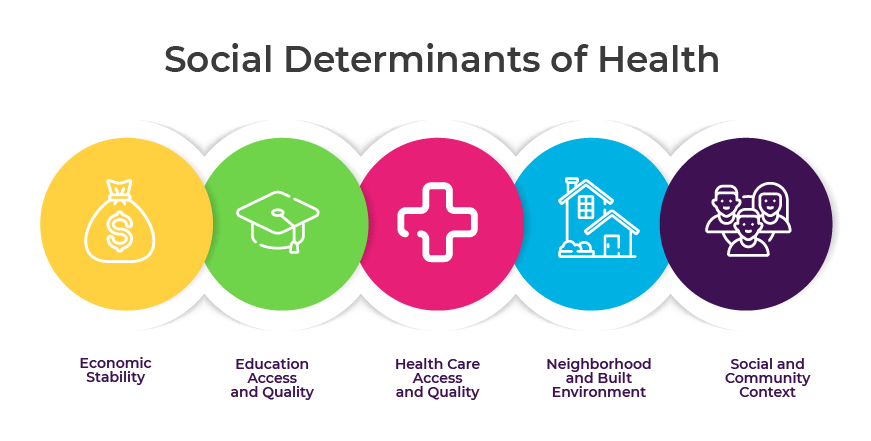
Unlocking the Key to Health Equity: Understanding Social Determinants of Health
Table of Contents
Understanding Social Determinants of Health
Social determinants of health encompass a wide range of factors that shape an individual’s health status and access to healthcare services. These factors include:
- Socioeconomic Status: Income, education, and employment status significantly impact access to resources such as nutritious food, safe housing, and quality healthcare.
- Physical Environment: Environmental factors such as air and water quality, housing conditions, and neighborhood safety can influence health outcomes and disparities.
- Social Support Networks: Strong social support networks, including family, friends, and community organizations, play a critical role in promoting mental health and resilience.
- Access to Healthcare: Availability, affordability, and quality of healthcare services can impact health outcomes and disparities, particularly for underserved and marginalized populations.
- Health Behaviors: Individual behaviors such as diet, physical activity, smoking, and substance use can significantly affect health outcomes and contribute to chronic diseases.
Impact on Health Outcomes
men health mag.co.uk/ have a profound impact on health outcomes and disparities across populations. Individuals living in socioeconomically disadvantaged communities are more likely to experience higher rates of chronic diseases, such as diabetes, heart disease, and obesity, as well as lower life expectancy and poorer health outcomes. Additionally, marginalized populations, including racial and ethnic minorities, LGBTQ+ individuals, and people with disabilities, face unique challenges and barriers to accessing healthcare services and achieving optimal health.
Addressing Health Inequities
Addressing health inequities requires a comprehensive and multi-sectoral approach that addresses the underlying social, economic, and environmental factors that contribute to disparities. Key strategies for addressing social determinants of health include:
- Policy Change: Implementing policies that address systemic inequities, such as affordable housing initiatives, living wage laws, and anti-discrimination measures, can help create more equitable opportunities for health and well-being.
- Community Development: Investing in community development initiatives, such as revitalizing neighborhoods, improving access to healthy foods, and expanding public transportation, can create environments that support health and well-being for all residents.
- Healthcare Access: Expanding access to affordable, high-quality healthcare services, particularly in underserved and rural areas, can help reduce disparities and improve health outcomes for vulnerable populations.
- Health Education and Outreach: Providing health education, outreach, and preventive services tailored to the needs of diverse populations can help promote healthy behaviors and empower individuals to take control of their health.
Conclusion: Advancing Health Equity Through Action
Social determinants of health play a pivotal role in shaping health outcomes and disparities across communities. By addressing the underlying social, economic, and environmental factors that contribute to health inequities, we can work towards building a more equitable and just healthcare system that promotes health and well-being for all. Through policy change, community development, healthcare access, and health education efforts, we can unlock the key to health equity and create healthier, more resilient communities for generations to come.





